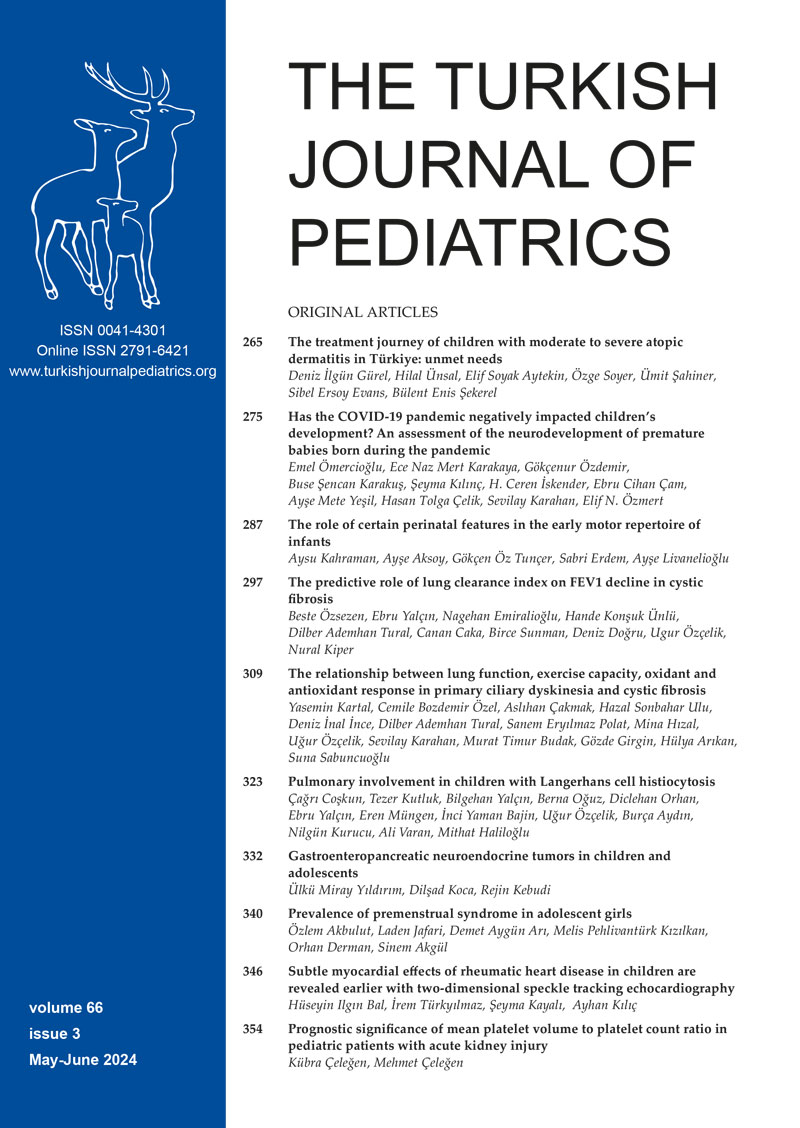Abstract
Background. Hyperkalemia is one of the most serious electrolyte disturbances, and it can cause lethal cardiac arrhythmia. Although hyperkalemia associated with ileostomies has been reported in adults, to the best of our knowledge, it has not previously been reported in neonates.
Case. We report ileostomy‒induced hyperkalemia that persisted during the ileostomy and resolved promptly after the closure of the ileostomy in two extremely low birth weight (ELBW) infants, with birth weights of 850 g and 840 g and gestational ages of 27 weeks and 27 weeks 6 days.
Conclusions. These cases highlight that disruption of intestinal integrity in ELBW infants may cause hyperkalemia. Ensuring the integrity of the gastrointestinal tract plays an important role in the treatment of electrolyte disorders such as hyperkalemia in ELBW infants with an ileostomy.
Keywords: extremely low birth weight, premature, ileostomy, hyperkalemia
References
- Wright CJ, Posencheg MA, Seri I, Evans JR. Fluid, Electrolyte, and Acid-Base Balance. In: Gleason CA, Juul SE, editors. Avery’s Diseases of the Newborn. 10th ed. Philadelphia: Elsevier; 2018: 368-389. https://doi.org/10.1016/B978-0-323-40139-5.00030-9
- Weise WJ, Serrano FA, Fought J, Gennari FJ. Acute electrolyte and acid-base disorders in patients with ileostomies: a case series. Am J Kidney Dis 2008; 52: 494-500. https://doi.org/10.1053/j.ajkd.2008.04.015
- Kononowa N, Dickenmann MJ, Kim MJ. Severe hyperkalemia following colon diversion surgery in a patient undergoing chronic hemodialysis: a case report. J Med Case Rep 2013; 7: 207. https://doi.org/10.1186/1752-1947-7-207
- Yorimitsu D, Sasaki T, Horike H, et al. Severe hyperkalemia following ileostomy not colostomy in a patient undergoing chronic hemodialysis. Kawasaki Medical Journal 2015; 41: 65-69. https://doi.org/10.11482/KMJ-E41(2)65
- Bonilla-Félix M. Potassium regulation in the neonate. Pediatr Nephrol 2017; 32: 2037-2049. https://doi.org/10.1007/s00467-017-3635-2
- Viera AJ, Wouk N. Potassium disorders: hypokalemia and hyperkalemia. Am Fam Physician 2015; 92: 487-495.
- Lehnhardt A, Kemper MJ. Pathogenesis, diagnosis and management of hyperkalemia. Pediatr Nephrol 2011; 26: 377-384. https://doi.org/10.1007/s00467-010-1699-3
- Ou CY, Chen YJ, Lin GB, Chen MF, Chia ST. Case report: newborns with pseudohypoaldosteronism secondary to excessive gastrointestinal losses through high output stoma. Front Pediatr 2021; 9: 773246. https://doi.org/10.3389/fped.2021.773246
Copyright and license
Copyright © 2024 The Author(s). This is an open access article distributed under the Creative Commons Attribution License (CC BY), which permits unrestricted use, distribution, and reproduction in any medium or format, provided the original work is properly cited.















